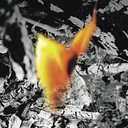Continuing to Learn
With software we continually improve by removing bugs and adding features. Eventually we get to the point we want to do something dramatically different and we call the last release a terminal release. At that point we don’t spend time on it anymore and it is stable. If you want the next set of improvements, a bigger upgrade is required.
Oddly, history has a similar rhythm. The nature of people telling stories in print means they stabilize into the accepted versions of history. Those versions remain distorted by what we’ve had access to remember. With mass digitization memory aided by computational search is more thorough than ever before. All that thoroughness comes to nothing unless someone takes the time to re-examine the sources and retell the story.
Sometimes the real story screams to be liberated from the archives and retold.
The Roger Williams previously remembered by history sounded almost secular compared to his original works. His interpretations of the Bible were dashed as novel and inappropriate by his enemies, theologian Perry Miller believed him inconsequential. The Baptists in my neighborhood weren’t quite sure if they really wanted to talk about him or not, given the cloud of heresy surrounding him, though “soul liberty” was unanimously attributed to him. Yet he studied the original languages and used methodologies used by St. Augustine, and it is many of Williams’s views that survive, while the Puritan orthodox views are largely discarded. Many of his conclusions are standard today across major Christian thought streams. To me, the dog-earred Dutch Bible and the gap between his writing (he did not ever write fiction) and what Cotton Mather (Williams’s rivals John Cotton’s and Richard Mather’s grandson) perpetuated was wide. The Cotton Mather perpetuated view of Williams was meant to make Williams look heretical, but was easily mistaken for a secular mindset. Attributing the word “secular” to Williams, a man who strove for a purity in the invisible true church while tolerating a fallen civil world, is error, and a part of why his story screams to be retold.
Here are some other things I learned since the historical notes at the back of Rekindled were put together:
- The Throckmorton child Freegift was quite likely a boy (sites claiming he was boy or girl can be found) but this seems persuasive: https://familysearch.org/photos/stories/13333456
- My source about John Gallop was largely the Winthrop journals, and that was summarized here http://www.findagrave.com/cgi-bin/fg.cgi?page=gr&GRid=10866775 However, John Gallop’s wife was found on a manifest three years later. The story that goes along with that view has his son was with him in during the Oldham incident as one of the lads. http://www.gallupfamilyassociation.com/family-history/
- Joseph Weld may have been Rev. Thomas Weld’s brother, not his son. The issue is, Joseph Weld had prodigious offspring who do not often list Rev. Thomas Weld as a brother. But that is the Puritan way…erasing things they did not like from memory.
None of these change the plot of the story. They are like severity 3 bugs that must await a something worth driving larger release to be incorporated.

